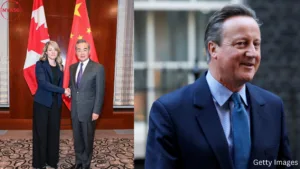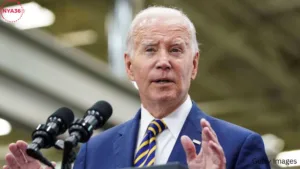Saudi Arabia, a prominent actor in the Middle east is actively seeking assistance from China in order to resolve the ongoing dispute, which has resulted in a decline of influence for the United States in the area. historically Saudi has upheld a strong and intimate partnership with the United States. Nevertheless, in the event that Israel and Palestine were to request support or intervention from China in order to address their ongoing dispute, it would potentially indicate a noteworthy transformation in the geopolitical dynamics of the region.
The protracted dispute between Israel and Palestine has endured for numerous decades, resulting in significant anguish and volatility throughout the Middle Eastern region. Efforts made by many international players, such as the United States, the United Nations, and neighboring nations, have encountered challenges in their pursuit of a sustainable resolution.
If Saudi Arabia were to seek mediation from China, it might potentially indicate a shift in regional alliances and strategies. Throughout history, the United States has exerted significant influence in the realm of Middle Eastern politics, mostly attributable to its robust military presence, substantial economic sway, and active involvement in diplomatic affairs. Nevertheless, in the event that Saudi Arabia pursues Chinese support, it might potentially signify a reduction in its dependence on the United States for the purpose of resolving conflicts within the area.
In recent years, China has witnessed an increasing level of engagement in the Middle East, predominantly manifested through economic investments and infrastructure initiatives, as opposed to direct political interference. The Belt and Road Initiative (BRI), a global strategy for infrastructure development, has extended its presence in many locations, including the Middle East. The establishment of stronger diplomatic relations with Saudi Arabia has the potential to enhance China’s regional standing and potentially diminish the influence of the United States.
The Middle East has long been seen by the United States as a region of significant strategic importance, primarily attributable to its abundant energy resources, geopolitical significance, and security considerations. Nevertheless, the potential realignment of alliances or a diminished U.S. involvement in the mediation of the Israel-Palestine issue may prompt a reassessment of its impact and strategic concerns within the area.
Furthermore, this action has the potential to significantly influence the overall distribution of power within the Middle East region. This development could potentially induce neighboring countries to reevaluate their diplomatic ties and partnerships, hence potentially resulting in heightened geopolitical rivalries and strategic reconfigurations.
The potential ramifications of the perceived decline in the United States’ power in the Middle East are manifold. The potential consequences encompassing diplomatic relations, security agreements, and commercial collaborations with other nations in the region could be influenced. Moreover, it has the ability to modify the dynamics of ongoing conflicts and peace initiatives, so potentially facilitating the emergence of opportunities for other dominant global powers to exert their influence.
Nevertheless, it is crucial to acknowledge that geopolitical scenarios are intricate and varied, and significant alterations in alliances or strategies require a considerable amount of time to come to fruition. The historical connections and military involvement of the United States in the Middle East remain influential elements in the geopolitical landscape of the region.
In summary, the hypothetical situation in which Saudi Arabia seeks China’s participation in addressing the Israel-Palestine conflict could potentially indicate a change in regional dynamics. However, the ultimate consequences for the United States’ role in the Middle East are uncertain and contingent upon a range of geopolitical factors and developments.
Follow us on social media: Instagram, Threads & Twitter X @nya360_ YouTube & Facebook @nya360.





